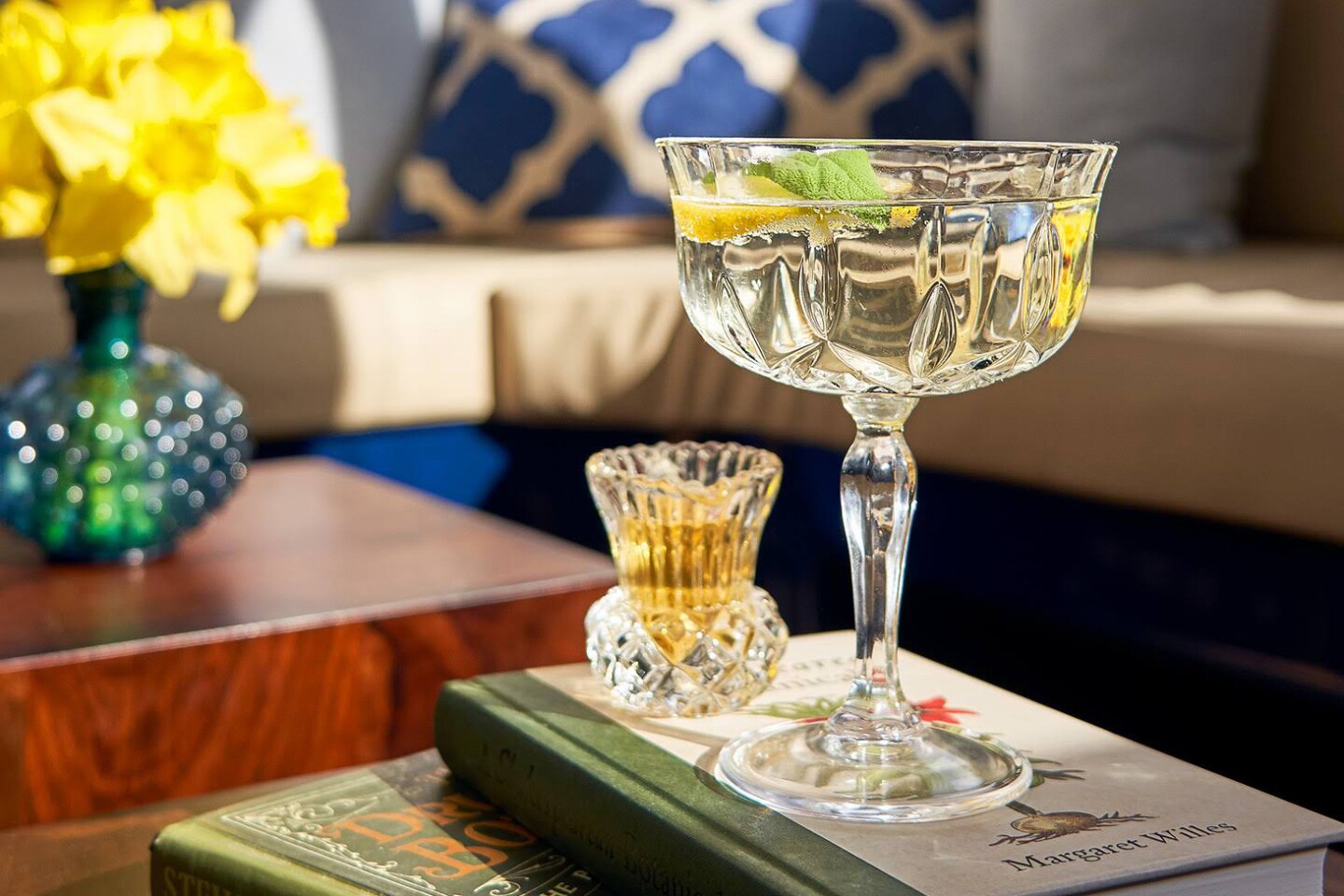It didn’t feel right to drink alcohol before the massage. “Isn’t the very idea of a massage to release toxins, not ingest them?” I asked the therapist. “You don’t have to drink them if you don’t want to,” she responded, “but these elixirs have hundreds of herbs for medicinal purposes.” Oh, OK then, if they have medicinal purposes.
She placed three small crystal goblets on a silver tray and filled them with jewel-colored liquids. Chartreuse, made from over 100 plants and flowers and known as the “elixir of life,” Frangelico, a 300-year-old hazelnut recipe, and D.O.M Bénédictine, brewed with 27 herbs, flowers, berries, and roots. The Chartreuse and D.O.M. Bénédictine tasted sharp and bitter, but the Frangelico was sweet, so I downed it like I was in a club and my favorite dance song had just come on. The liquids, although potent, were warming, and I felt my chest quickly gain heat: the perfect antidote to a gray and drizzly day.

The Monks’ Elixir, the signature treatment at Monkey Island Estate, starts with a tipple tasting.
Courtesy of Monkey Island Estate
Surprisingly, the most unusual thing about this spa wasn’t my pre-treatment elixir tasting, but that fact that it took place on a boat. And not in the spa on a giant cruise ship, but in a traditional wide-beam English canal boat on the Thames at the new Monkey Island Estate hotel, which opened this spring roughly 30 miles west of London. Occupying a resplendent white building that dates back to 1723, Monkey Island Estate is located on a private island just a mile from the center of Bray-on-Thames, the culinary town famous for Heston Blumenthal’s The Fat Duck. The newest addition to the YTL Hotel Group’s English collection, Monkey Island Estate joins the Gainsborough Bath Spa in Bath and the Academy Hotel in London, which YTL reopened in 2018 after a full renovation. The new property in Bray has everything you’d want from an English retreat: stately rooms that look onto a rolling green lawn, a garden with chickens and a vegetable patch, and a lounge with 17th-century frescoes. Then there are the things you wouldn’t expect—like the floating spa, which was the brainchild of YTL spa consultant Melissa Mettler.
“We had all these amazing plans for the island; to build gardens, introduce beehives, and add chickens. But I thought, where is the river in all this?” says Mettler, who is acutely aware of how formulaic spas have become. Here, the spa is anything but ordinary. It may seem like an unlikely choice, putting a luxury spa on a small boat, but for Mettler, it simply made sense.
After deciding on the location, she immediately started researching everything about the Thames—from its history, to the poems written about it, to its contribution to healing. A fan of London’s Chelsea Physic Garden, Mettler drew inspiration for the floating spa from the barge that the Worshipful Society of Apothecaries, an ancient livery company, used to trade remedies, roots, and elixirs near the historic botanical garden in the 17th century.

The waiting area of the floating spa
Courtesy of Monkey Island Estate
Monkey Island itself also has a long history with herbal offerings. It was once inhabited by monks—a possible source of the island’s name—who researched and traded medicinal herbs and plants, and also used the river as their passageway. The spa pays tribute to these monks and their medicinal infusions with treatments like the Monks’ Elixir, the spa’s signature experience I tried that begins with the tipple tasting.
“Monks were the original party boys, brewing mead, wine, and medicinal herbal elixirs,” says Mettler, who chose the herbal tonics from recipes that had been formulated by monks hundreds of years ago. “Although we now use them in our cocktails . . . they were once considered medicine. I use them in the signature treatment to soften the mind-set of what we consider ‘healthy’ and ‘not healthy.’”
Feeling warmed and ever-so-slightly buzzed from the elixirs, I followed the therapist to the snug wood-clad treatment room. While the rain beat against the porthole window, I relished the massage, which incorporated infused oils and warm packs to help lubricate joints.
After the 90-minute treatment, I sat in the stern of the boat and sipped warm tea in the waiting area, a glistening wooden room filled with glass canisters inscribed with infusions like rosemary kombucha, kefir probiotic, and arnica oil. On the shelf above were bottles of Chartreuse, D.O.M. Bénédictine, and Frangelico, as though behind the bar of a nightclub. I felt anything but “unhealthy,” so at dinner that night I ordered a post-treatment glass of red wine to prolong the feeling.











